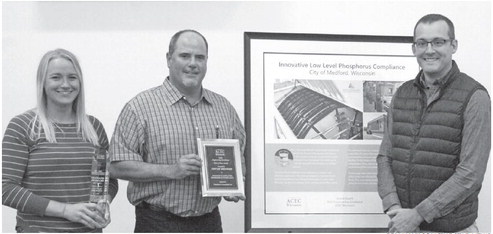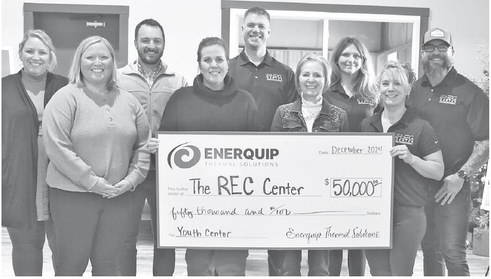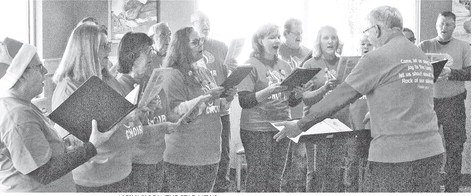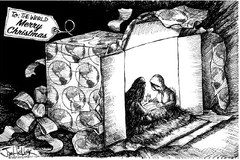City receives award for sewer project


Brooke Klingbeil also recognized as operator of year by state association
The city of Medford knows what it is doing when it comes to protecting ground and surface water quality.
While the plant and its operators have built a reputation on the regional basis, they recently brought home awards and recognition at the state level on behalf of the operations and the innovative phosphorus removal system at the plant.
Eric Lynne an area manager out of the St. Louis Park, Minn. office of Donohue and Associates was at Monday’s Medford City Council committee of the whole meeting to present the city with the 2020 Grand Award for engineering excellence from American Council of Engineering Companies (ACEC) Wisconsin and leading industry organization.
Lynne explained that the project had to clear numerous steps to earn the recognition. The first step is that each firm selects a few of their highest profile projects to submit. Those projects then proceed to become state finalists which the judges use to determine the best in a variety of categories. The grand award is picked by the judges from among the top awards in the state. According to Lynne, criteria include innovation, client satisfaction, complexity, future value to the engineering profession, and social, economic, and sustainable design considerations.
According to a release announcing the award, the city of Medford’s wastewater treatment plant had been faced with equipment issues and a future ultra-low level (0.075 mg/l) effluent phosphorus limit that could not be met with its existing four-cell deep bed sand filter system.
In collaboration with Donohue & Associates, the city was able to develop a simple, cost-effective system that filters out the phosphorus before returning it to the environment. The team designed a chemical feed system to achieve low effluent phosphorus and a disk filtration system to replace the existing sand filter system. A typical approach to phosphorus compliance (membranes) would have cost the City millions of dollars more. The operations staff were integral in providing input, evaluating alternatives, and selecting the final solution that met their goals.
This facility is the first in the state to merge rapid mix coagulation, flocculation with polymer, and physical separation of the precipitate using disk filtration to achieve high quality effluent for the pristine headwaters of the Black River.
While phosphorus is an essential element for plant life, too much phosphorus in the water causes algae to grow faster than ecosystems can handle. Significant increases in algae harm water quality, food resources and habitats, and decrease the oxygen that fish and other aquatic life need to survive (eutrophication). Through this project, the project team was able to cost-effectively reduce Medford’s phosphorus discharge to the Black River, which also assists with the State’s nutrient reduction goals in minimizing phosphorus loadings to the Mississippi River.
The solution developed extends existing equipment’s useful life, fits within existing buildings, and reduces power consumption. The new system does not require additional operator attention or compromise permit compliance during maintenance. The project included advanced on-line analyzers, which provide the operators with up-to-date data for use in determining the level of chemical dosing required. Using this detailed information to determine the optimal level of chemicals saves money and minimizes the environmental carbon footprint.
The City’s goal was to find a cost-effective, operatorfriendly solution that would help the City minimize demands on their already limited staff. Other non-traditional alternatives evaluated to meet the low level phosphorus limits were not feasible, such as adaptive management, water quality trading, and variances. Donohue assisted the City with manufacturer qualifi cations before assembling bidding documents to improve construction coordination. A low-cost, operatorfriendly solution proven to work full-scale at the City is changing this dynamic. The solution designed by Donohue is proof that clean water is possible at an affordable rate.
The City proudly shares their experiences with other communities in a way that develops a new network of phosphorus minimization specialists. These specialists will lead the water sector into the future as these tightened phosphorus limits are required at more facilities throughout the Midwest.
One of the truly unique aspects of this project is that the disk filter technology is universally scalable for both small and larger size plants. In fact, based on the City’s success, signifi cantly larger communities (including Brookfield, Wausau, and La Crosse) are currently designing disk filter systems to meet lowlevel phosphorus limits. These operator-friendly, cost-effective filters are being used in place of traditional membranes, saving millions of dollars for ratepayers in these communities.
Former City Coordinator John Fales remarked, “This project was a highly collaborative effort between the engineer (Donohue), the manufacturer (Veolia), the construction contractor (Staab Construction), and our dedicated City personnel. This was a true partnership with all parties, as the installation is one of the first in the country to achieve the consistent low-level limits that we are experiencing. Prior to this project, our 10year average for phosphorus was 0.64 mg/l; we are now averaging 0.04 mg/l with our new system, meeting our permit requirements years ahead of schedule.”
By achieving compliance before the deadline, the City may forgo many iterations of status reports and planning documents that are required for non-compliant facilities, saving thousands of dollars. With an ability to readily expand tertiary treatment flow capacity, the City is in a position to accommodate additional flows from regional communities who are faced with the same strict low level limits but would otherwise be unable to comply without expending significant capital.
Operator award
In addition to the award presented to the city for its plant design, wastewater treatment plan operator Brooke Zondlo received the regional operator of the year award from the Wisconsin Wastewater Operators’ Association during the recent state convention held last week.
Zondlo is in her ninth year with the city of Medford as the plant’s lab director and operator.
She was nominated for the award by plant superintendent Ben Brooks who noted that Zondlo has grown substantially as an operator and is a proven asset to the city’s operations.
“Brooke plays a vital role in the day to day operations and all tasks of performing contractual lab testing. The data she produces in the lab helps optimize plant performance as well as chemical dosing saving the city money,” Brooks said.
He went on to praise Zondlo’s collaborative relationship with the Department of Natural Resources. “The DNR is our friend,” Brooks said of the great relationship she has built with the regulatory agency in their shared dedication to clean water.
“Brooke demonstrates an extraordinary commitment to the wastewater community as well as to friends and family and this is why she has received this prestigious award,” Brooks said.
“I would not be where I am without Ben,” Zondlo said of the mentorship role Brooks has had with her and providing her with opportunities and support to advance her learning and skills.
Medford has built a strong and well-earned reputation at the state level in wastewater treatment plant operations. Zondlo is the fourth Medford operator to earn statewide recognition. The award has also been earned by Brooks and John Fales. Alex Zenner previously earned the new comer of the year award for his work in the plant.
“There is a big wealth of knowledge to learn from,” Zondlo said. “I am honored and humbled at the same time.”



